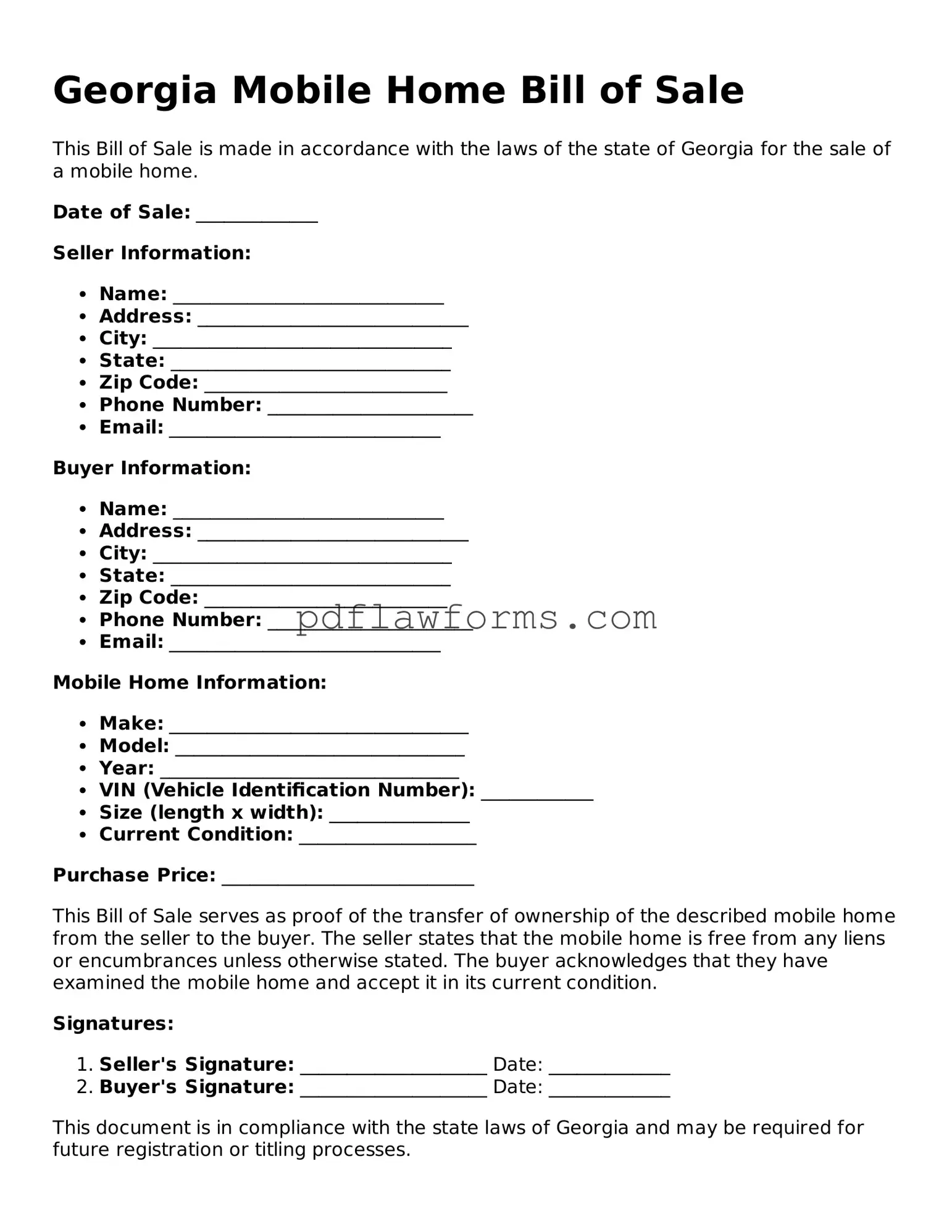Mobile Home Bill of Sale Form for the State of Georgia
A Georgia Mobile Home Bill of Sale form is a legal document used to transfer ownership of a mobile home from one party to another. This form outlines the details of the sale, including the parties involved, the mobile home's description, and the sale price. Completing this form is essential for ensuring a smooth transfer of ownership and protecting both the buyer's and seller's rights.
To fill out the form, click the button below.
Make My Document Online

Mobile Home Bill of Sale Form for the State of Georgia
Make My Document Online
You’re halfway through — finish the form
Edit and complete Mobile Home Bill of Sale online, then download your file.
Make My Document Online
or
⇩ Mobile Home Bill of Sale PDF
